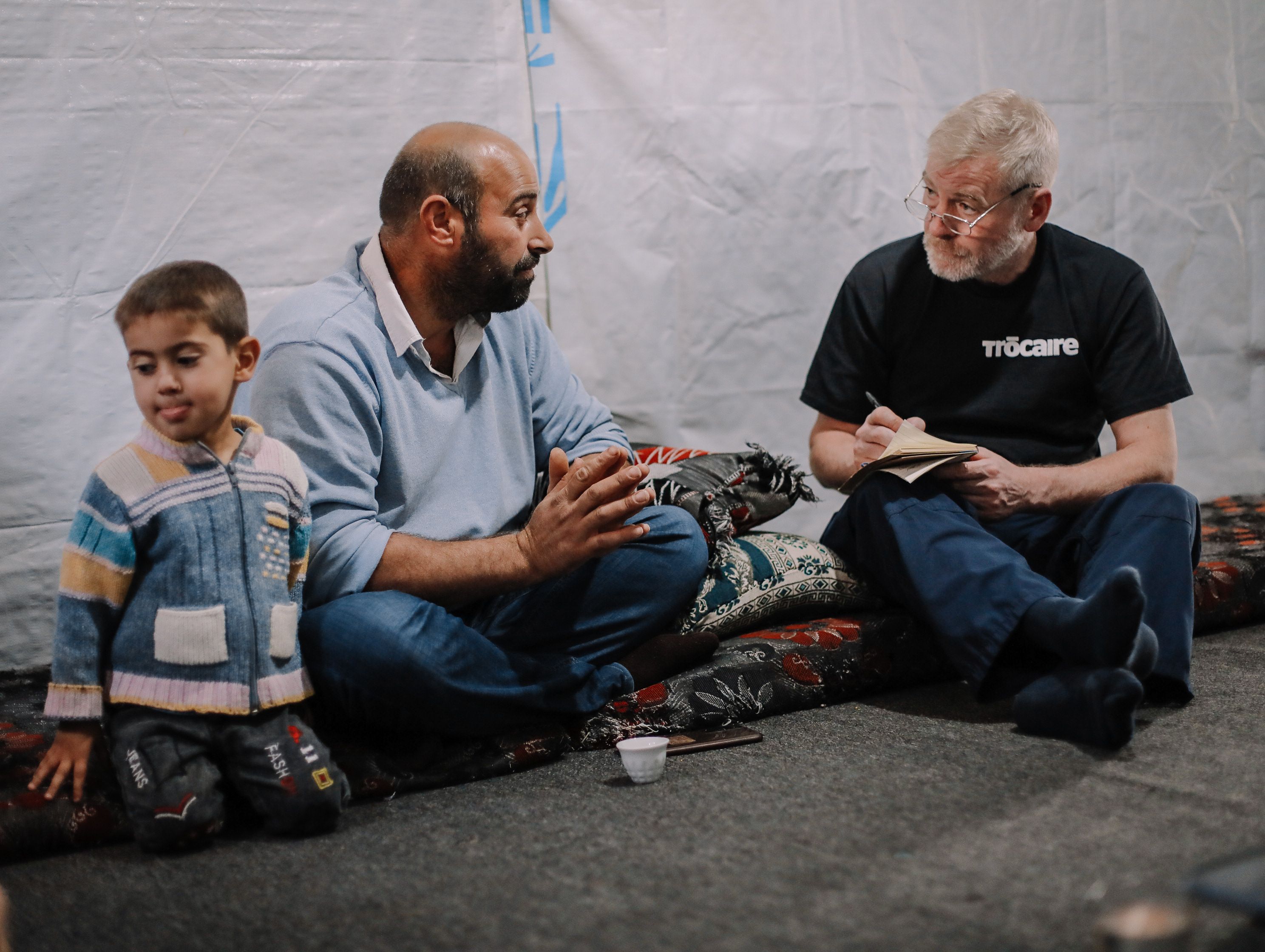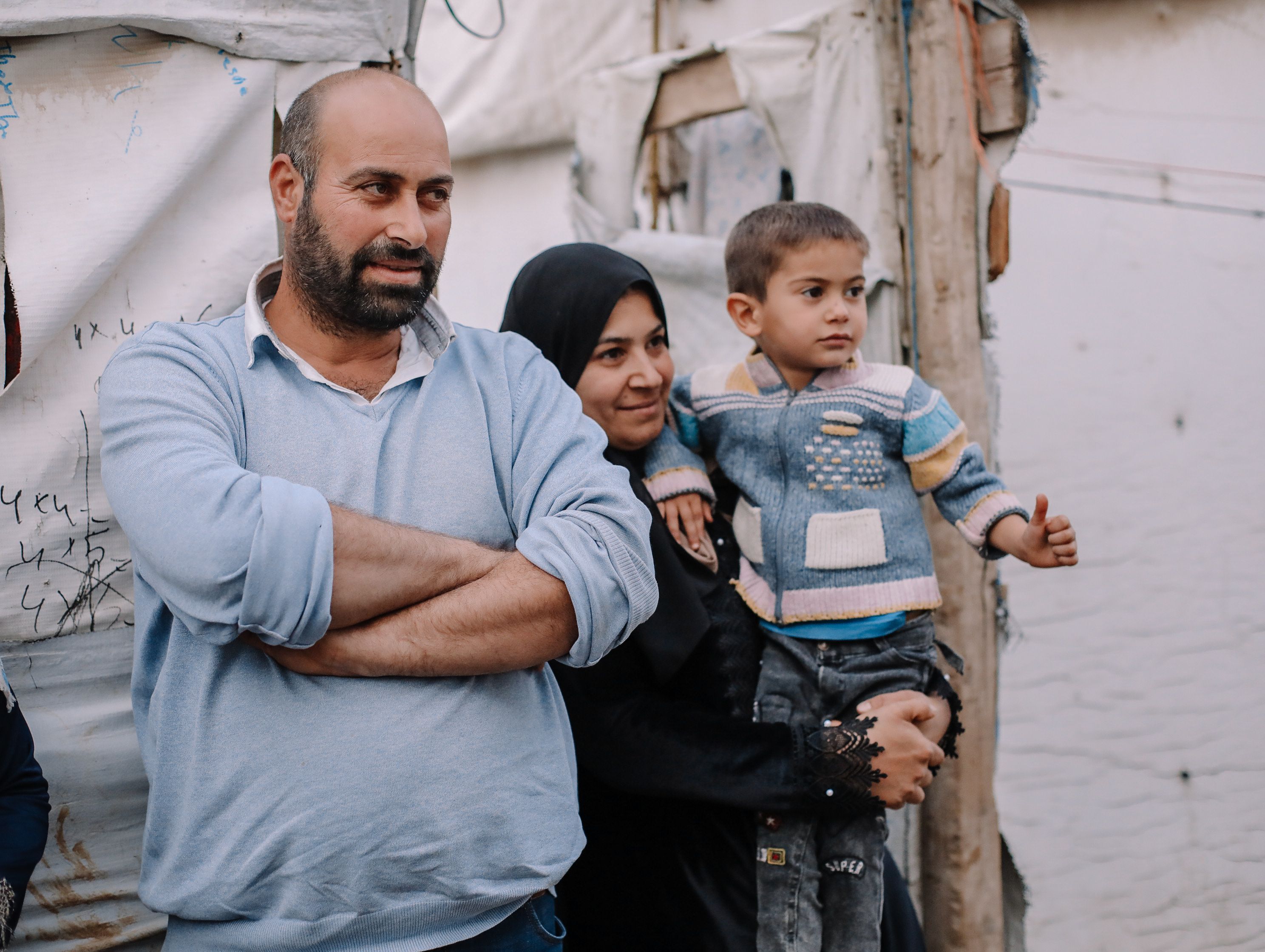Belfast man David O’Hare who works for Trócaire has returned from Lebanon where he met with Syrian refugees living in very challenging circumstances
WE drove around a sweeping corner on the busy road from Beirut and in front of us the Bekaa Valley stretched away for miles as far as the eye could see. It’s a desolate and bleak place sandwiched between two mountain ranges on the Lebanon/Syria border. Temperatures here can drop to minus 10 degrees in winter.
The Bekaa Valley is ‘home’ to tens of thousands of Syrian refugees who had to flee their homes because of the war in Syria which has dragged on now for almost twelve years. Of the total population of six million in Lebanon, around 1.5 million people are Syrian refugees – one of the largest concentrations of refugees per capita in the world. This is putting enormous strain on the country which is facing other challenges too.
There is a lack of a fully functioning government. An economic and banking crisis has seen the value of the currency plummet and inflation go through the roof with prices of staple goods rocketing. There is an energy and fuel crisis. And the fallout from the Beirut port explosion in 2020 and the Covid pandemic are still being felt. All of these factors are having an effect on the Syrian refugees in the country who are being made to feel very unwelcome by the Lebanese government.
I am overwhelmed by the response there has been to the coverage of my trip to Lebanon with Trócaire. And of the generous donations that have flowed from it. Nobody is getting presents from me this year. I’m making a donation myself! https://t.co/PvJ4lGoN1j pic.twitter.com/QePED9EG44
— Amanda Ferguson (@AmandaFBelfast) December 7, 2022
I visited a number of the camps where these refugees are living. They are called ‘informal settlements’ by the government to give the impression that they are temporary – but they are camps and some of the people have been here since the war in Syria began. The shelters are not permitted to be built of anything that could be classed as semi-permanent like concrete so people have had to fashion them out of wood and tarpaulins.
The Bekaa Valley on the Lebanon/Syria border is home to tens of thousands of Syrian refugees ( Hazar al Zahar)
The shelters are extremely basic and very hard to heat. Fares Fares is programme manager for Trócaire’s partner organisation SAWA. He told me that the challenges were enormous for the people living here.
“The tents here are at risk of flooding and also collapse during rain storms and heavy snow. There is a real fear that people will be injured or even killed if this happens. People need food, winter clothes, fuel, wood and tarpaulins so any support we can give is very welcome,” he said.
Trócaire's banner on the Liberty Hall building highlights the struggle of a Syrian family living in a settlement camp in Lebanon. Your support will provide families with hope that they can make it through this winter.
— Trócaire (@trocaire) December 16, 2022
If you can, please donate today at https://t.co/dKU32FZ0lc pic.twitter.com/YItlDi2FSB
To add to people’s misery there has been an outbreak of cholera in the camps and there is a fear this could spread.
I spent time speaking to people and hearing first-hand how difficult their lives were. One thing that struck me was that these were ordinary people - civil servants, teachers and the like - who were living ordinary lives in Syria before their world was turned upside down.
Ali Mohamed Al-Shella (44) and his wife Arkan Jassem Al-Khalaf (36) have been living in ‘Camp 12’ for nine years with their six children. They lived in Homs in Syria, an area that was particularly hard-hit in the war.
“I was a builder and we had a nice house in Homs but we had to leave as it wasn’t safe,” said Ali. “We left everything behind and I have heard that our house has now been destroyed. We are now living in a tent as you can see and it has been really difficult to come to terms with.”
Arkan told me she feared what winter would bring.
“We used to get support from the UN in the form of food but this has stopped this month. I think if we get through this winter we will be doing well,” she said.
Their biggest fear is how they will keep their children warm this winter. The cost of oil for heating has more than doubled recently and Ali only gets work sporadically in Beirut. Refugees are only allowed to work in three sectors – farming, cleaning and construction – but work is hard to find.
David O'Hare speaks to Ali Mohamed Al-Shella in the tent that is home to him, his wife and six children (Hazar al Zahar)
I asked them if they wanted to return to Syria. Ali said they had nothing to go back to and it was much too dangerous. Arkan misses her extended family but agrees with her husband that it is too risky to return.
I heard similar stories everywhere I went – heart-breaking accounts of people having to flee their homes and real fears about what the future holds. But it was a privilege to meet these women, men and children and for them to trust me with their stories. They just want what we all want – to be safe, healthy and happy.
Trócaire will continue to work with our partners to try to ensure that these people are able to live with dignity. The Trócaire Christmas Appeal is focusing on the millions of people around the world forced from their homes because of conflict, the effects of climate change and other crises. I know things are tough for families here at home right now because of the cost of living challenges we are all facing but, if you are able, please do consider supporting the appeal. It will not only change lives but just might save some too.
One of Trócaire's Christmas Gifts this year is called 'Winter Essentials' (£20) which will help provide warm winter clothing and materials to fix shelters in the camps in Lebanon where temperatures are expected to fall well below freezing in some parts. Visit trocaire.org to donate.



